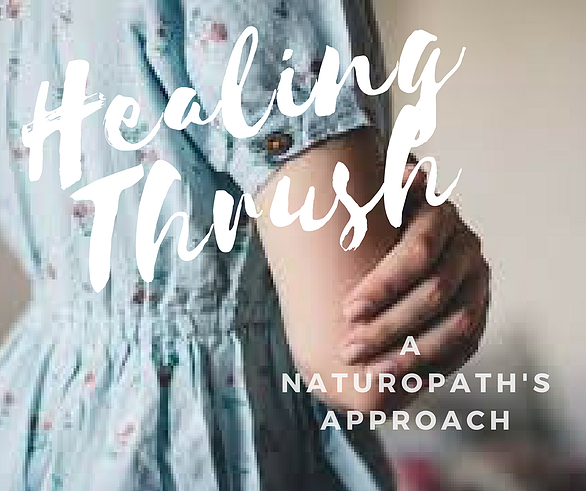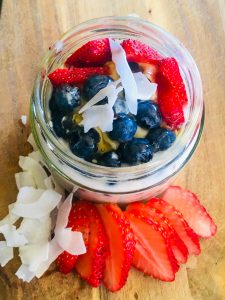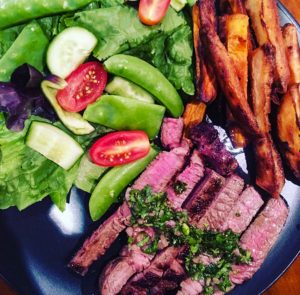Last post we talked about many of the drivers that contribute to women developing thrush. I also mentioned the importance of being sure your symptoms are from thrush, or Candida Albicans, and that they’re not actually stemming from another condition or from a less common, more treatment-resistant strain of Candida. You can have a read of it here if you need to catch up.

Today I wanted to chat about how I approach treating Candida as a Naturopath. Many women share with me that their symptoms can ebb and flow, flaring and settling from time to time depending on circumstances such as diet, emotions, stress and antibiotics. Others attest to the fact that for them thrush will often reoccur, even after treatment with over the counter anti-fungal agents.
This is usually because standard treatments are not addressing the vaginal dysbiosis (or supporting your immune system). Nothing has been done to re-establish a normal, healthy ecology. We’ve removed a few cars out of the car park so to speak but haven’t necessarily filled the empty spots up again preventing new (unwanted) cars from parking. No wonder it commonly reoccurs!
For lasting results, and for true healing instead of symptomatic improvement we need to address the dysbiosis and the shift in the environment that allows the growth of these so called “bad” organisms in the first place.
How can we begin to fix it?
I commonly use a mix of both topical as well as ingested medicines to support Candida in my patients. Orally I give a mix of strain-specific probiotics proven to:
· Inhibit the growth of Candida albicans and E.coli
· Adhere to urogenital cells
· Colonise the vagina after ingestion (fill up the car parks)
· Infiltrate biofilms (protective coats) to kill pathogens
Not all probiotic strains are equal, so I ensure I’m using strains that have the scientific support behind them. This can mean the difference between clearing thrush for a client or just managing symptoms. Ones I typically choose from include Lactobacillus rhamnosus GR-1, Lactobacillus fermentum RC-14, Lactobacillus acidophilus NAS, Lactobacillus acidophilus La% and Lactobacillus rhamnosus GG. My exact choice depends on the client in front of me as there is subtle differences between them which means one can be more appropriate than another depending on the case.
We need to feed the good species of bacteria, encouraging their growth and ability to fill up empty car spaces and for this purpose there are a few specific prebiotics I choose. The beauty of a true prebiotic is they act as a food source for good bugs alone and do not feed Candida or E.coli. My favourite to use in thrush is lactulose, as it’s also known to support the healthy pH of the vagina which makes it unfavourable for pathogens to grow. In stubborn or severe conditions I may add nutrients or herbs to support the immune system and its ability to fight infection. In other clients, it may be necessary to include support for digestion and elimination.
Topically probiotics and prebiotics also feature in my approach along with certain antifungal agents. One such example is a liquid herb made from pomegranate husks. It has evidence of inhibiting Candida, is anti-inflammatory and helps disrupt and inhibit the protective coat known as a biofilm. Others may include green tea extracts for its anti-candida, anti-biofilm and prebiotic effect or medicinal grade oregano.
Each treatment is prescribed on a case by case basis and is designed with the needs of my client in mind. It may be a mix of oral supplements to take and personalised blends to apply locally. It could involve any combination of herbs, essential oils, prebiotics and probiotics as mentioned above.
By now you may have picked up on the fact that I’m a stickler for what makes it into my treatments for thrush. It may seem a little rigorous from the outside but it’s for good reason. It’s to protect the microbiome. It’s to minimise collateral damage on the good bugs as they are so very important in preventing infections and re-occurrence rates.
The treatments I am happy to use in my patients are those that are not only effective against candida but have been shown to have minimal to no negative effect on lactobacilli (the main beneficial species found in the vagina).
So many anti-fungal agents (herbs and essential oils included) can wreak havoc on the microbiome and to me, the negatives often outweigh any benefit.
If you need any specific support feel free to book an appointment to see me in clinic on Brisbane’s north side. I am more than happy to help.
Share the love

About Sandi
Sandi Cooper is an experienced Naturopath working in clinical practice for almost two decades. Her clients love her down-to-earth approach and her naturally caring qualities. Although Sandi is experienced in most areas of clinical practice, she has a special interest in children’s health and nutrition, working with parents to get the best outcomes for their children.




